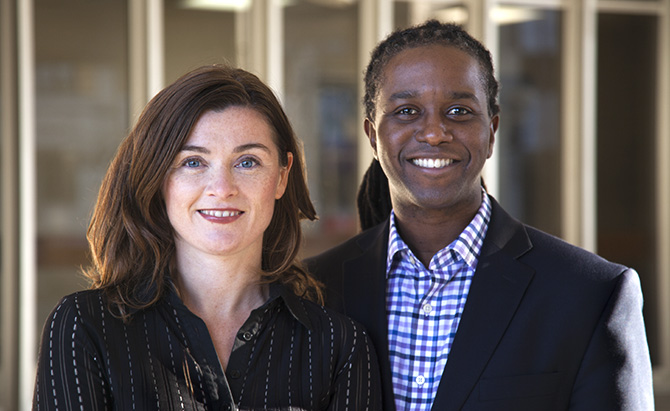
In collaboration with Madison-based nonprofit GSAFE, UW Professors Sara McKinnon and Maurice Gattis recently released a report entitled “School Experiences of Transgender and Gender Non-Conforming Students in Wisconsin.” To gain some insight into their study, I asked Professor McKinnon about the research that was done.
Tell me a bit about the research you did with transgender and gender non-conforming students in Wisconsin.
The inspiration for this project was actually the community itself. In 2012, GSAFE assembled a group of researchers on campus who do research on issues of gender and sexuality to brainstorm about what a research project examining the experiences of transgender (trans) and gender non-conforming (GNC) youth might look like. In the past, GSAFE would get calls from parents and schools about how to meet the needs of gay kids in schools. In the last few years they had received a lot more calls seeking information about what trans or GNC youth might be going through in schools. There is very little research that documents what these students experience in K-12 schools. The research that is captured in the community report is a first step at remedying this.
How did you conduct the research and who was involved?
My co-PI, Dr. Maurice Gattis (Assistant Professor, UW-Madison School of Social Work) and I worked with a team of researchers, including Com Arts PhD student KC Councilor, to conduct four focus groups, which are basically group interviews, with trans and GNC youth in Green Bay Madison, Milwaukee and Racine, Wisconsin between the ages of 13-24. We also conducted a focus group with the parents of Trans and GNC youth. After completing the focus groups and transcribing the files into written transcripts, the team then moved through a grounded-theory inspired open-coding process to analyze the data. From there, we began to come up with tentative answers that we’ve written up in the report as our emergent results.
What were the main findings of the study?
There is a continuum of support in Wisconsin schools for trans and GNC youth. Some schools are taking immediate actions, such as changing policies and procedures in relation to students’ names in school registrations systems, or making gender-affirming restroom facilities available for students. Other students talked about very challenging situations in their schools. For example, some trans and GNC students avoid going to the bathroom all day—which means that they also limit food or water consumption all day—because the facilities available in their schools aren’t safe options. The community report describes six categories where we found this continuum of support to be present in trans and GNC students’ experiences in Wisconsin schools: Learning environment, physical facilities, health and wellness, safety, institutional and social support, acceptance and respect.
What impact would you like the report to have on Wisconsin schools?
We hope that the data and analysis generated through this research helps schools in Wisconsin to make school life for students of all gender identities and expressions (with particular focus in this instance on the unique experiences of trans and GNC students) more safe, affirming, and welcoming. We are currently developing a model for a training intervention to be implemented in schools as a potential method that helps schools create this change in environment.
Are you continuing this research? What are your next steps in this area?
Yes! Data collection and analysis are on-going. Since releasing the community report we have conducted interviews with trans and GNC youth in more rural and/or remote areas of the state. We have also conducted focus groups with school staff (nurses, counselors, health teachers, etc.) because we thought it important to get a better sense of what schools know about gender identity/expression, how staff make sense of their interactions with trans and GNC youth, and what staff identify as the gaps in meeting the needs of trans and GNC youth. We will be integrating our findings from both of these sub-sections of the research into our broader conclusions and suggestions.
To view the full report, click here.
Pictured: Professors Sara McKinnon and Maurice Gattis.